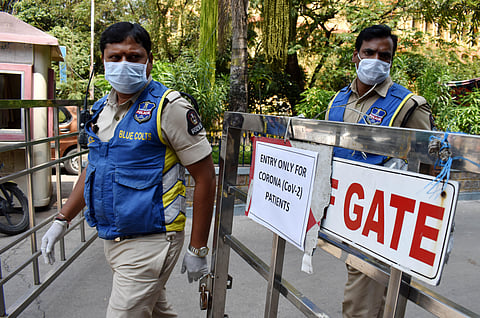EDITORIAL | Responding to the coronavirus epidemic without panic
With the positive cases of coronavirus in India climbing to 29, of which 15 are Italian tourists, a sense of alarm seems to have set in not only in government circles but also among the common man.
At least three high-level meetings in the Central government have taken place since Tuesday while many people are already taking precautionary measures in their homes.
While all this is not necessarily bad, panic should not set in as the response to the global health challenge will then not be based on informed inputs.
As of Wednesday, the global death toll had crossed 3,190 with more than 93,000 people being infected by the virus worldwide. China is the worst hit, with 2,981 deaths and 80,270 cases in all.
After China, it is South Korea that is the most affected, but the situation in Iran and Italy is also alarming.
The response from the Indian government so far has been quick and adequate, which has kept the threat from the virus in check till now. All entry points into India, especially airports, are being screened for coronavirus.
The government also evacuated many Indian students in China, sending at least two aircraft for the purpose.
At home, many quarantine facilities have been set up. On Wednesday, PM Narendra Modi announced that he will not celebrate Holi because of the virus.
Many have taken the cue from him and will also desist from the festival of colours.
ALSO READ | COVID-19 screening increases five fold
As long as the threat was only from Indians who had travelled abroad, the virus was contained.
But the situation has now changed as six cases of local transmission have been detected.
The affected man from Delhi had travelled to Agra, where the authorities believe he transmitted the virus to six others.
This poses a huge challenge as the authorities have to trace all the contact points of the virus-affected man in order to rule out that he has not infected more.
Given the size of India’s population, this task is gigantic. Faced with this new reality, the authorities will have to be on their toes, with public participation holding the key.

